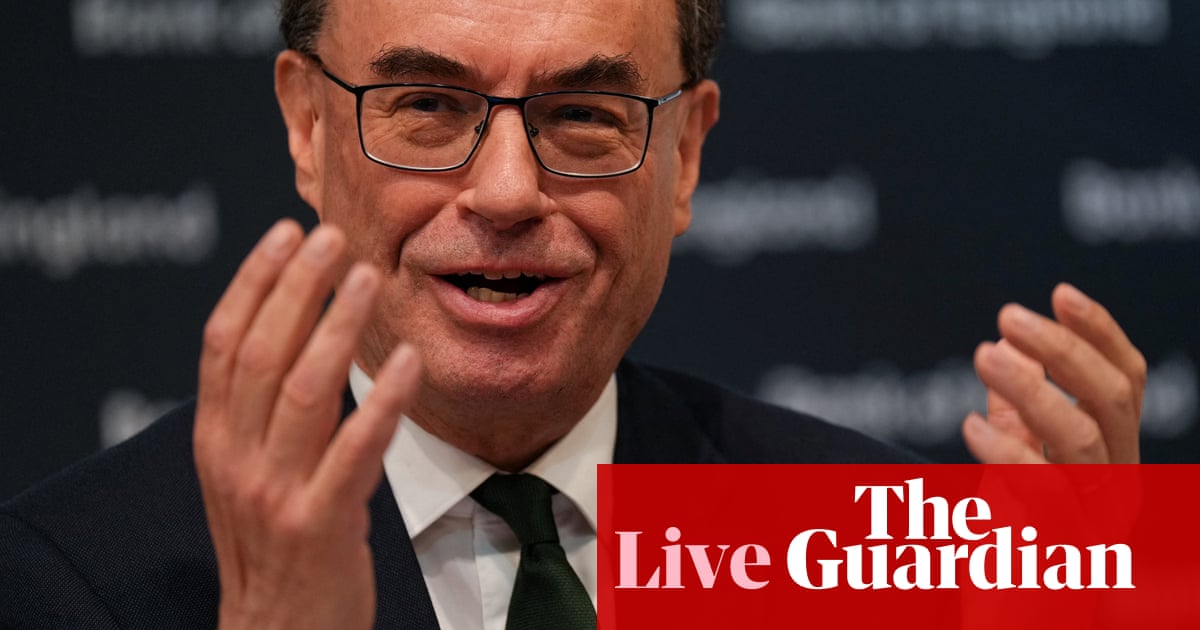Bill Sweeney’s fate as the Rugby Football Union’s chief executive will be decided shortly after the Six Nations following an embarrassing U-turn from the governing body which has now relented to a grassroots rebellion and agreed to a special general meeting.
Sweeney has two weeks to set a date for the SGM, which is expected to be held in either late March or early April, after the RFU confirmed that it is “validating the additional information” sent in a letter by the 152 members – a combination of clubs and constituent bodies – calling for the chief executive’s removal.
The rebels had called for the SGM to be held no later than 28 February but there must be a 45-day grace period and it will not take place before the Six Nations has concluded.
The RFU’s U-turn comes after Friday’s council meeting in which Bill Beaumont was ratified as interim chairman before issuing a call for unity in an open letter to all member clubs. The former World Rugby chairman has taken over from Tom Ilube, who stood down shortly before Christmas, and will spend the lead-up to the SGM visiting clubs to “debate and agree a united way forward”.
Ilube stood down, citing how “recent events have become a distraction from the game”, amid widespread fury after it emerged in late November that Sweeney was paid £1.1m, including a £358,000 long-term incentive plan (LTIP) bonus, while five other executive directors shared close to £1m amid 42 redundancies and the RFU’s record loss to reserves of £42m.
Sweeney’s fate is ultimately in the board’s hands, for it is only they who can sack him. The rebels, who on Thursday said they had “scores” more clubs ready to support their cause, understood to be around 70, when calling for the SGM and a vote of no confidence in Sweeney, have urged the board to remove him “as soon as is practicably possible”.
It is understood, there is no specific voting threshold required to force the board to sack Sweeney at an SGM but the rebels believe a simple majority would suffice. Sweeney, who is said to retain the full support of the board, will be desperately hoping that Steve Borthwick can guide England to the Six Nations title in the interim.
The extent of the rebels’ anger was laid bare in a scathing letter sent to Sweeney on Thursday. They cited the “negative reaction across stakeholders throughout the game” to the pay scandal, “significant concerns around good governance and effective checks and balances”, the attempts of the RFU president, Rob Udwin, to brush off negative coverage as “media spinning” and “clickbait” and losses of around £130m over the past two World Cup cycles.
They also reference the “tackle height debacle”, the demises of Worcester, Wasps, London Irish and Jersey Reds, a failure to deal with promotion and relegation and the “wasted money spent on sacking England coaching staff”.
The RFU dismissed the motion on technical grounds, insisting that the submission was invalid because it provided a list of the supporting clubs rather than the required two signatures from each and on the basis that it was outdated as it also called for Ilube to be removed.
The rebels reacted furiously and accused the RFU of “postponing the inevitable”, insisting that the necessary signatures had been provided in a separate email.
On Friday night, the RFU said: “The RFU is in the process of validating the additional information that has now been provided to request a Special General Meeting. The notice to request an SGM contained a significant number of inaccuracies, however, the RFU respects the right of its members to call for an SGM and for their views to be heard. A date for the SGM will be announced in the next two weeks and it will take place after the Six Nations has concluded.”
after newsletter promotion
Beaumont’s lengthy letter to the clubs demonstrates an awareness of just how fractured the game in England has become. Following last month’s emergency council meeting, the Guardian revealed how a group of members sent their colleagues a furiously-worded letter in the aftermath of Ilube’s resignation, pointing to cultures of “bullying, entitlement and elitism”. The rebels’ letter also demonstrates the level of fury across the country.
Beaumont writes: “It is very clear the game wants and needs unity, and it is my priority to help to bring the game together. Unity does not mean no challenge or debate. I hear and empathise with some of the concerns around the payment of a long-term incentive plan. I want to understand how decisions were taken, and it is right that an independent review of the process has been commissioned. The review should be allowed to run its natural course, and I look forward to its outcomes.
“This is a serious moment for the game of rugby in England. There have been demands for change without clarity on the real reasons why, or proposals for an alternative vision. There has been a call for a Special General Meeting and we will respect the right of members to have their views heard.
“Our sport has a long history of in-fighting and we sometimes lose sight of what is best for rugby as a whole. Whatever we do next, it needs to be for the good of the English game. We need to listen and be supportive of one another. That is why I will be hitting the road on a nationwide tour of rugby clubs in January and February, so we can debate and agree a united way forward.
“We also need to reflect on how hard the last few years have been. I can offer a wider context on that from my recent position as chair of World Rugby. The impact Covid, inflation and a cost-of-living crisis has had on the game around the globe has been significant in terms of participation, confidence, and finances at every level. Objectively, we should ask whether English rugby, in the aftermath, was managed effectively. Having seen all countries wrangle the same problems, I can say with confidence in comparison to many other countries the RFU has come out of this period very well.”

.png) 3 months ago
39
3 months ago
39













































